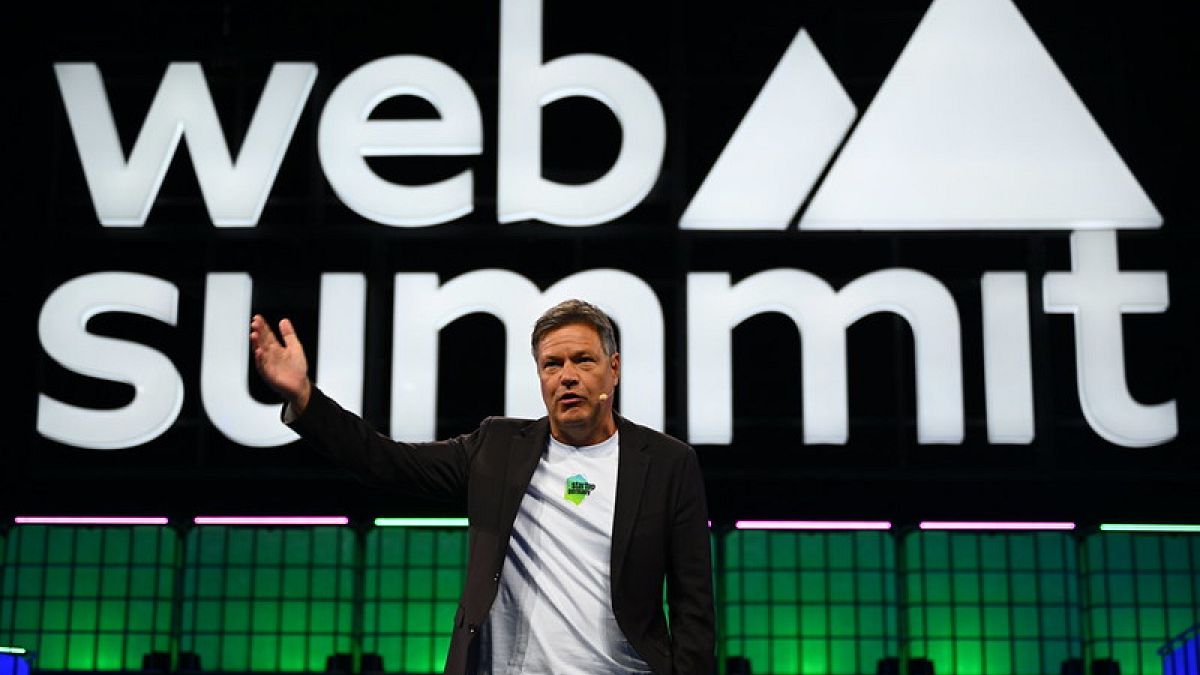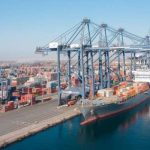As Germany prepares for its 2025 elections, Green Party’s Robert Habeck is open to talks with all parties for possible post-election coalitions. With elections set for February 23, following a deal between the SPD and CDU, Habeck emphasizes the importance of unity despite mounting political tensions. The Greens were part of the “traffic light” coalition formed in 2021, but ideological divisions led to its dissolution after nearly three years. With just over three months until the early parliamentary elections, Habeck expresses readiness to work with any party, stating that “anything is possible.”
Germany’s Vice Chancellor, Robert Habeck, attending the Web Summit in Lisbon, discusses Germany’s political future amidst doubts about his own. Amidst a drop in German economic confidence due to Donald Trump’s return to the White House and his threat of imposing tariffs on the European bloc, Habeck emphasizes Germany’s role in maintaining European unity. He stresses that Germany, as the largest economy in Europe, is essential for achieving European unity and effectively responding to threats. Habeck is expected to win the internal race to become the Green Party’s candidate for chancellor, although his chances of leading the federal government remain slim due to challenges such as the energy crisis sparked by Russia’s invasion of Ukraine.
As Germany faces political tensions and economic uncertainty, Habeck’s openness to forming coalitions with various parties across the political spectrum reflects a pragmatic approach to governance. Despite challenges such as ideological divisions and a drop in popularity due to policy shifts in response to crises like the energy crisis, Habeck remains committed to finding common ground and compromises to move the country forward. By calling for unity and cooperation, Habeck highlights the importance of democracy and the need for parties to come together to share visions and work towards common goals.
In the face of the economic implications of Donald Trump’s return to the White House and the threat of tariffs on the European bloc, Germany’s Vice Chancellor Robert Habeck emphasizes the importance of Germany’s role in maintaining European unity. He warns against those undermining the image of Europe, stating that they are also trying to destroy the possibility of freedom in the continent. By stressing the need for a united Europe to effectively respond to threats, Habeck positions Germany as a key player in the continent’s stability and future development. As the largest economy in Europe, Germany’s influence and cooperation with other European nations are crucial for safeguarding the region’s interests.
With the upcoming 2025 elections looming, Germany’s political landscape is characterized by uncertainty and challenges. Despite being part of a previous coalition that dissolved due to ideological divisions, Robert Habeck remains open to forming alliances with any party in order to navigate the complex post-election negotiations. As Germany’s Vice Chancellor, Habeck’s pragmatic approach to governance and commitment to finding compromises and common ground reflect his understanding of the importance of unity in moving the country forward. With just over three months until the elections, Habeck’s willingness to work with all parties, regardless of their political affiliations, underscores his dedication to ensuring stability and progress in Germany’s political landscape.
In conclusion, as Germany inches closer to the 2025 elections, Robert Habeck’s openness to forming coalitions with all parties and his emphasis on unity and cooperation highlight his pragmatic approach to governance. Despite challenges such as ideological divisions and economic uncertainties, Habeck remains committed to finding common ground and compromises to address pressing issues facing the country. With Germany’s role in maintaining European unity and responding to external threats looming large, Habeck’s leadership and willingness to work with diverse political parties signal a path towards stability and progress in Germany’s political future.










